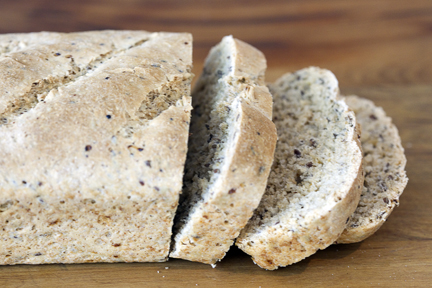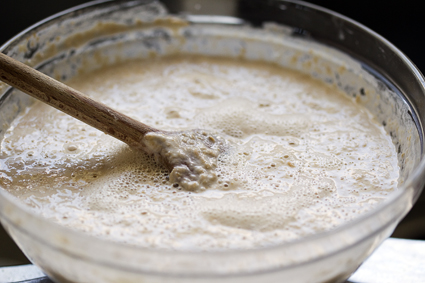The history of “sour dough” is as old as the history of leavened bread. Around 6,000 years ago humans discovered how to promote the fermentation and leavening of grains to first be brewed into beverages and then to be baked into bread. Next they figured out how to save a portion of the fermented grains to use to “start” the fermentation of the next batch of bread. Since then we have been using and making sour dough.
Sour dough is a simple mixture of flour and water which combines with “wild” yeasts and bacteria that leaven and flavour the bread dough. The natural yeasts in a sour dough starter are strains of a yeast family, Sacchraromyces exiges, which has a harmonious symbiotic relationship with a good bacteria lactobacilli .
First mix equal quantities of wholemeal flour and water. Never use metal bowls or spoons.
I use one cup as I live alone and this makes a loaf that I can consume within a couple of days. Next add the sour dough starter and mix. When the bubbles appear it means that the mixture has caught some wild yeasts. The times this takes depends on the ambient temperature. The mixture will smell sour and yeasty.
When it has increased in size and has bubbles take some of this culture and store in a glass jar in the fridge. This is the starter for the next batch of bread.
Add flour and whatever other ingredients you want to use. In this mix I used soy lecithin and linseed. Mix in enough flour for it to come together.
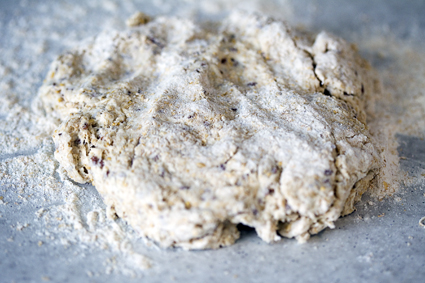 The dough can either be place straight into a loaf tin and will produce a heavy moist loaf or it can be kneaded. I chose to knead the dough. Place in a greased loaf tin and leave to rise.
The dough can either be place straight into a loaf tin and will produce a heavy moist loaf or it can be kneaded. I chose to knead the dough. Place in a greased loaf tin and leave to rise.
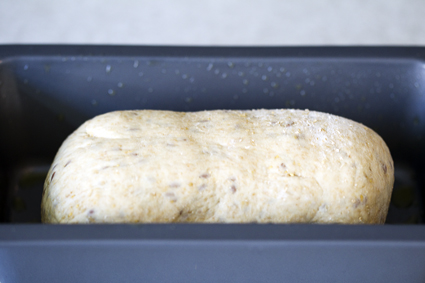 After about three hours it had risen and it was time to put it into the oven. Score the top and crank up the oven to as hot as it will go. Place the dough in the oven and cook for 10 minutes. Then turn down the oven to 190C for another 30 minutes.
After about three hours it had risen and it was time to put it into the oven. Score the top and crank up the oven to as hot as it will go. Place the dough in the oven and cook for 10 minutes. Then turn down the oven to 190C for another 30 minutes.
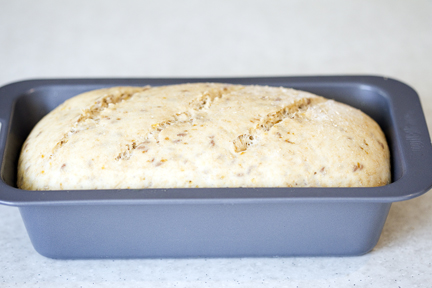 The bread is ready when tapping it sounds hollow.
The bread is ready when tapping it sounds hollow.

